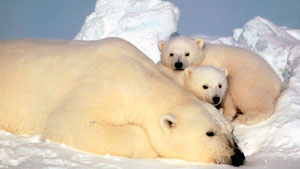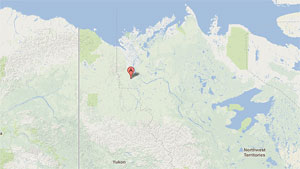Arctic Spill Exercise Won't Use Oil: Canadian Coast Guard
Controlled spills of the real thing might be needed eventually, scientist says
The Canadian Coast Guard won’t use actual oil during its High Arctic training exercise in how to deal with oil spills, but a scientist says it might be necessary to do so in the future.
The coast guard is planning to conduct oil-spill response training in August near Resolute, Nunavut, as part of Operation Nanook, the Canadian Forces’ annual summer sovereignty exercise in the Arctic.
Members of the community and Canadian Rangers will be trained in operating equipment used to contain oil slicks, such as floating booms, said Larry Trigatti, the coast guard’s superintendent of environmental response in the central and Arctic region.
‘Boots on the ground’ exercise
But Trigatti said no oil will be released into the water during the exercise.
“There’s no need for us to put any stress on the environment whatsoever,” he told CBC News.
“It’s really sort of [a] ‘boots on the ground’ type [of] deployment to ensure that we have the capability of getting up to speed very quickly.”
Trigatti’s comment came after CBC News learned of a proposed study by the federal Department of Fisheries and Oceans to spill 1,200 litres of oil in Barrow Strait, Wellington Channel and Lancaster Sound in order to test oil dispersants such as clay and chemicals.
The study was cancelled for this year, however, because the lead scientist has joined experts that are currently trying to contain the massive BP oil spill in the Gulf of Mexico.
The decision to cancel the study for now came as a relief to the Qikiqtani Inuit Association, which opposed the dumping of any oil near Lancaster Sound.
The Inuit association has been working with the federal government to study the idea of creating a national marine conservation area in Lancaster Sound to protect mammal and bird species there.
Research needed: scientist
But Paul Hill, a geological oceanographer at Dalhousie University in Halifax, said controlled spills should be done before any oil and gas drilling takes place in the North.
“It comes down to a question of values,” Hill said. “Do we, as a society, want to continue to extract from ecologically sensitive regions?
“If the answer to that is yes, then we have to do this kind of research to understand what the consequences of an accident would be.”
Hill said some small-scale controlled oil-spill research has taken place in other parts of Canada, including the St. Lawrence River and the East Coast.
“The scale of what’s being done is always miniscule compared to the scale of what you see going on down in the Gulf of Mexico or what would happen if there was an actual oil spill in the North,” he said.
Hill’s research includes adding sediment, like mud or minerals, to oil spills to break it up into small droplets that are considered to be relatively safe.



